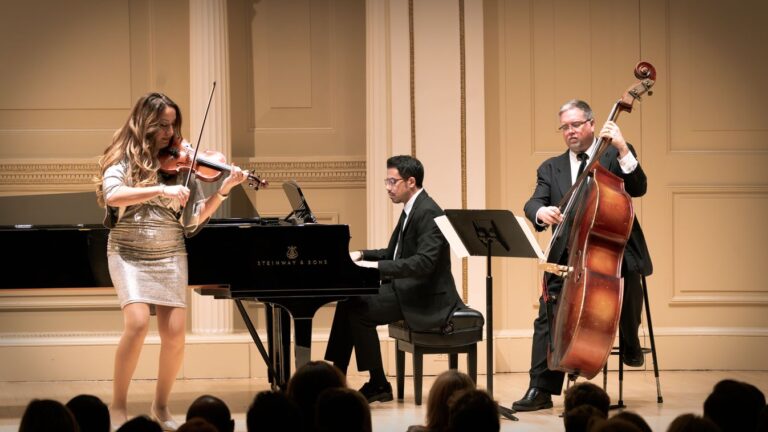‘It would be in our best interest to cultivate friendship and good relations with Hungary, independently of who is in power right now,’ Werner J Patzelt emphasises. A former full professor of comparative government at the Technical University of Dresden and Research Director of MCC Brussels, he shared with Hungarian Conservative his views on the importance of German-Hungarian diplomatic ties in an interview conducted at the MCC Feszt in Esztergom.
***
I’d like to start by discussing one of the most fundamental issues in the EU: democratic deficit. There have been measures aimed at improving it. Have these measures been successful, or is there still room for improvement?
Well, there is room for improvement, which is kind of an understatement. See, democracy means that the people have a say in policymaking. So the practical question is, who are the European people and how can the European people, whatever this may be, give expression to the preferences of the European people? But is there a European people? No, because as Marx would say, there is a class in itself and a class for itself. Being just a class in itself does not enable you to perform political participation. So of course there are Europeans, there are Hungarians, Poles, Germans, and so on. But there are no European people identifying themselves as European people. Sure, we are citizens of the European Union. But the sense of citizenship here is quite empty.
And how can a non-existing European people give expression to its preferences?
The best possible thing one might do is that European people elect their governments, hold their governments accountable to the people, and those European governments act on the European level as representatives of the nations. This is the old model of the European Union. We have the Council of Ministers and these guys give expression to the preferences of the people who sent them there. Then we have introduced a parliament in the hope that the members of parliament would give authentic voice to the different peoples of Europe. But if this should be the case, we would need all people in the EU to have an equal vote, which is not the case in the European Parliament. A Luxembourg person has much more voting power than a German person. (Editor’s note: Seats in the EP are assigned to members states by a formula of degressive proportionality.) So this per se is an inconformity with democracy. And then, how can these MEPs be held accountable? Do we have responsible European parties? No, we have national parties that form the groups in the European Parliament. But there is no European Social Democratic Party or no European Christian Democratic Party. So all the prerequisites necessary for turning democracy from only a notion or a concept to reality are absent on the European level.
But even though we Europeans don’t share a common language, don’t we have common European values?
Well, the question would be, what are European values? If we would say, well, democracy is a European value, then my counter-question would be, was there no Europe back in the 13th century? If gender equality is a European value, my question would be, well, was there no Europe around 1700? If rule of law is a European value, well then, my question would be: was there no Europe back in the 16th century? So many things that we label as European values today are values, no doubt. Many of these values have their origin, their roots in Europe. But these are not what makes our identity European. Our European identity comes from our cultural heritage. It is the Greek tradition, and the Greeks were the heirs of the old Middle East, Egypt and the Mesopotamians. So, Greek heritage, Roman statecraft, Roman law—mind you, the German Empire was called the Holy Roman Empire—and later the German nation in the 17th century. So it is Roman tradition and it is Christianity, of which present liberal and wokeish Europeans say is of no value any longer and we need to get rid of it, because, because…
So a significant part of European culture is fading away. The Greek tradition of philosophy, knowledge, curiosity, is being lost. We live in the period of cancel culture, of narrowing down what can be contested or argued or put into question. In terms of reason, of statecraft, state building, practical political rationality, much has also been lost. Well, if you look at our European countries, we have got rid of much of our practical political rationality in terms of security politics, which we have seen regarding the Russian attack on Ukraine.
We have lost our sober, clear political thinking
when it comes to energy politics, in particular in Germany. So, the whole discourse of European values is, at present, not much more than a substitute for practicing European identity, for practicing European values.
In theory, we have the second article of the TFEU in which we have a list of these European values, but it seems like they are not equally important for the European Union. Do you think that, for example, minority rights are not as important for the European Union today as the rule of law? There are people arguing that, for example, the European Citizens’ Initiative has been unsuccessful in the case of national minorities because the issue is not so significant for the European institutions.
Well, of course, there’s the rule of law, something important, and we should appreciate the rule of law and we really should cultivate it as one of our values. Of course, minorities and the rights of minorities are absolutely necessary. But what we see in Europe nowadays is a strictly tactical approach to values. I can bash you because you have some divergences in your country’s legal system from our German or French or whatever system. And I can say, well, we have the right law, you have the wrong law. We are following the rule of law structured by European values, whereas yours is not structured along European values, therefore you have no authentic, no real rule of law. See, the starting point of the argument is not that something is wrong in a country. The starting point is that we, for whatever political reason, disagree with a country or with the political party in power. And then we make up values that fit into our argumentative purposes. We play with European values or with claims of European values, but we do not really practice them.
And something very interesting that you mentioned in the panel discussion was the power of the purse and the importance of Germany, as Germany is a key player in the field of public discourse. You also mentioned that Hungary is not as strong in this regard as Germany. What can we learn from Germany, or why is it so important?
Who should learn from whom?
I was wondering what your answer to this question would be.
Well, it is simply the fact that a country with this size of a population, with the popularity of its language, and with its economic past simply cannot hide. If you are an elephant, you can’t play the role of a mouse. That’s a simple truth. But an elephant also needs to be careful. He has simply too much weight. He is too big. He cannot move as he wants to move. This is what Germany is doing right now. As if the German elephant got the feeling that the Hungarian mouse is disturbing, and is crossing its path. Therefore, the elephant feels free to deal with the mouse as if the mouse had no right to be a mouse, doing all the work that befits a mouse. I hope you understand my metaphor. So what should be learned is the following. If we, Germans, as the biggest power in the heart of Europe, want to play our role, we need to take into consideration that we need to be brokers between the different interests in Europe, between Eastern Europe, Western Europe, Northern Europe, Southern Europe; this is the traditional role of Germany. Second, we, in our best interest, besides having good relations with France, Italy and so on,
we should invest a lot of energy in maintaining the best possible relationships with all Eastern and South-Eastern European states.
In particular with Poland. And since Hungary is the exceptional country that does not dislike Germans, it would be in our best interest to cultivate friendship and good relations with Hungary, independent of who is in power right now. Because it is the right of the Hungarian people to bring into power whomever this country wants to bring to power. So we should try to remain what Helmut Kohl described as the best friend of its East European and South East European neighbours. And my advice to Germany would be to try once again be the best possible friend of Hungary, not a patronising friend, not like Russia was the friend of all former communist countries, but a sincere honest, not selfish, best friend and ally. This is a cause which we have unfortunately abandoned, and which we should find our way back to.
So what do you think Hungary can do to make the most of its Council presidency next year?
First of all, Hungary has to take over the presidency, which will entail some struggles. And I really hope that the right of Hungary to be the next presidential power will not be spoiled by political moves by whomever because this will do damage to the European Union to an extent that we have not seen since General de Gaulle left the Council of Ministers back in the ’60s. So, what could Hungary do? As far as I know, Hungary has on its agenda things like family, education and so on, which are really important issues. In terms of substance, I think that Hungary has much to give because the basic lines of Hungarian policies, as far as I see and understand, are quite correct and would be helpful for other European countries as well, starting from migration control to cultivating national identity and national pride. The challenge for Hungary is communication. Hungarians, as far as I have experienced over the last one and a half years, Hungarians still tend to remain among themselves, or within a close circle of best friends, instead of going out and explaining in not only clear terms, but in a soft, diplomatic voice, what Hungary is all about. So I think a smoother approach in terms of communication and diplomacy might be helpful. Again, the old Romans give a good example of how this should be done: Suaviter in modo, fortiter in re (gently in manner, firmly in action). If you want to promote your positions you must be strong, really strong. But in the way you give expression to your position, you need to be suave, polite, and welcoming, embracing. And here Hungarian policymakers need to improve somewhat.
Could communication be key in closing the conditionality mechanism against Hungary? Or what else would be needed? Because the Commission keeps saying that it is a good step in the right direction whenever Hungary takes measures.
Well, this problem is much deeper than the surface of diplomatic communication: there is a real political will in Europe to simply withhold this money from the Hungarian government, to demonstrate that the government is engaging in bad governance and is not serving the people. So you create the conditions under which the government performs badly or worse than it would be performing if things were normal. So, I think it’s not diplomacy alone. Here, Hungary simply has to move steadily forward. The approach by your former minister of justice [Judit Varga] was the right one, she always was polite and clear. She, however, was not as successful as would have been desirable and as would have been possible.








